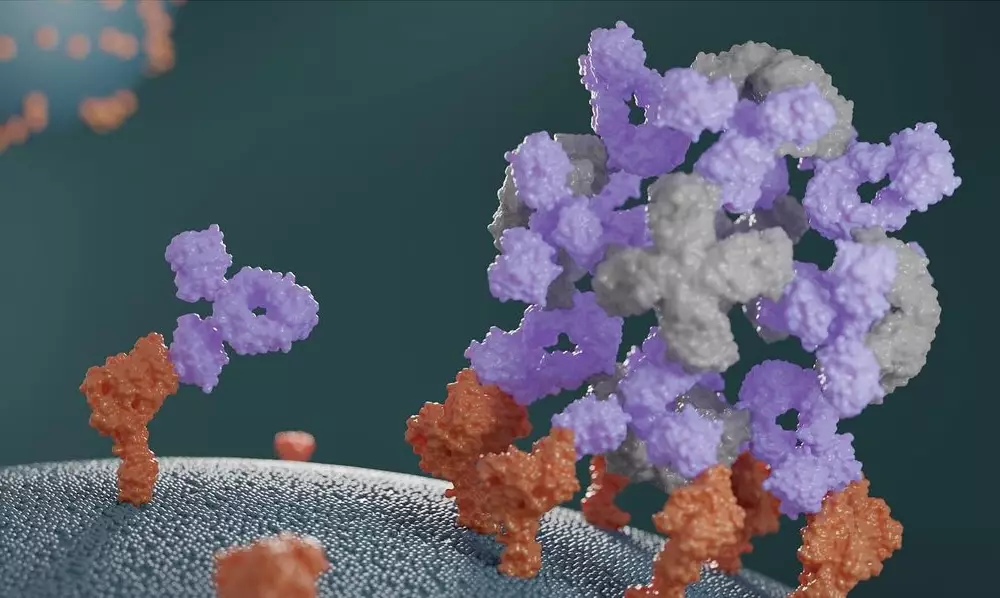In the rapidly evolving field of biotechnology, innovative approaches continue to push the boundaries of treatment possibilities. Archon Biosciences, a groundbreaking startup recently unveiled, exemplifies this shift with its novel application of artificial intelligence (AI) in designing biomolecules. Emerging from the hallowed halls of the University of Washington’s Baker Lab, Archon has secured a substantial $20 million in seed funding, positioning itself as a leader in the future of antibody therapies. With a clear vision to enhance traditional treatments, Archon aims to unleash the full potential of antibody therapies through its innovative “cages” that optimize their binding effectiveness.
What sets Archon apart is its strong foundation in cutting-edge scientific research. Under the guidance of renowned computational biologist and Nobel laureate David Baker, Archon is not just another biotech startup but a commercial extension of groundbreaking academic achievements. Baker’s team at the Baker Lab has made invaluable strides in generative protein design, a process that harnesses computational power to create new proteins with desired functionalities. Archon’s strategy capitalizes on these advancements to bring practical applications to market, promising a transformative impact on drug development.
Despite its potential, antibody therapy faces significant hurdles, primarily due to the inherent complexities of molecular interactions. The traditional methods used for antibody development often rely on chance— a free-floating antibody may struggle to effectively bind to its target, leading to unpredictable results in treatment efficacy. Archon addresses this fundamental issue through its antibody cages (AbCs). By engineering a scaffold that can house multiple antibodies, the startup increases the likelihood of successful binding, which could greatly enhance the reliability of treatments.
The concept behind AbCs is rooted in a simple yet powerful analogy: imagine encapsulating antibodies within a geometrically designed structure, like a dodecahedron. This configuration amplifies the antibodies’ binding capacity to target proteins significantly compared to their traditional, solitary counterparts. The implications of this innovation are staggering; by bolstering the binding efficiency and efficacy of antibodies, Archon may bridge the gap that has traditionally plagued the field of antibody therapies. In an industry where every fraction of binding efficiency can determine the success of a drug, this development could be game-changing.
Archon’s approach is not merely theoretical; the company leverages its proprietary protein design platform, which is seamlessly integrated with rapid, in-house manufacturing and testing capabilities. This streamlined process ensures that the development of biologics—complex medicines derived from living organisms—is not only efficient but also scalable. As James Lazarovits, co-founder and CEO, elucidates, the ultimate goal of Archon is to provide the necessary tools that could empower researchers and clinicians to explore previously inaccessible disease targets with confidence and precision.
Capitalizing on this promising potential, Archon Biosciences recently completed a lucrative funding round led by Madrona Ventures, complemented by various other investors. This financial backing, joined with significant grant funding from esteemed institutions, facilitates Archon’s ambitious journey as a commercial entity. Positioned in Seattle, where the intersection of academic research and entrepreneurship thrives, Archon is poised to influence the landscape of drug development profoundly. As it continues to innovate, the biotechnology community eagerly anticipates further developments that could redefine our understanding of biologics.
As Archon Biosciences charts its course into the future of biotechnology, the implications of its advancements extend far beyond the creation of novel therapies. The startup embodies a future where AI and computational biology converge to tackle some of the most pressing healthcare challenges. With its sophisticated approach to antibody enhancement, Archon could potentially alter the trajectory of drug discovery, making previously ineffective treatments not only viable but also effective. As we await TechCrunch’s insights into this promising venture, one thing is clear: Archon Biosciences is on the brink of a remarkable revolution in the biopharmaceutical domain.

